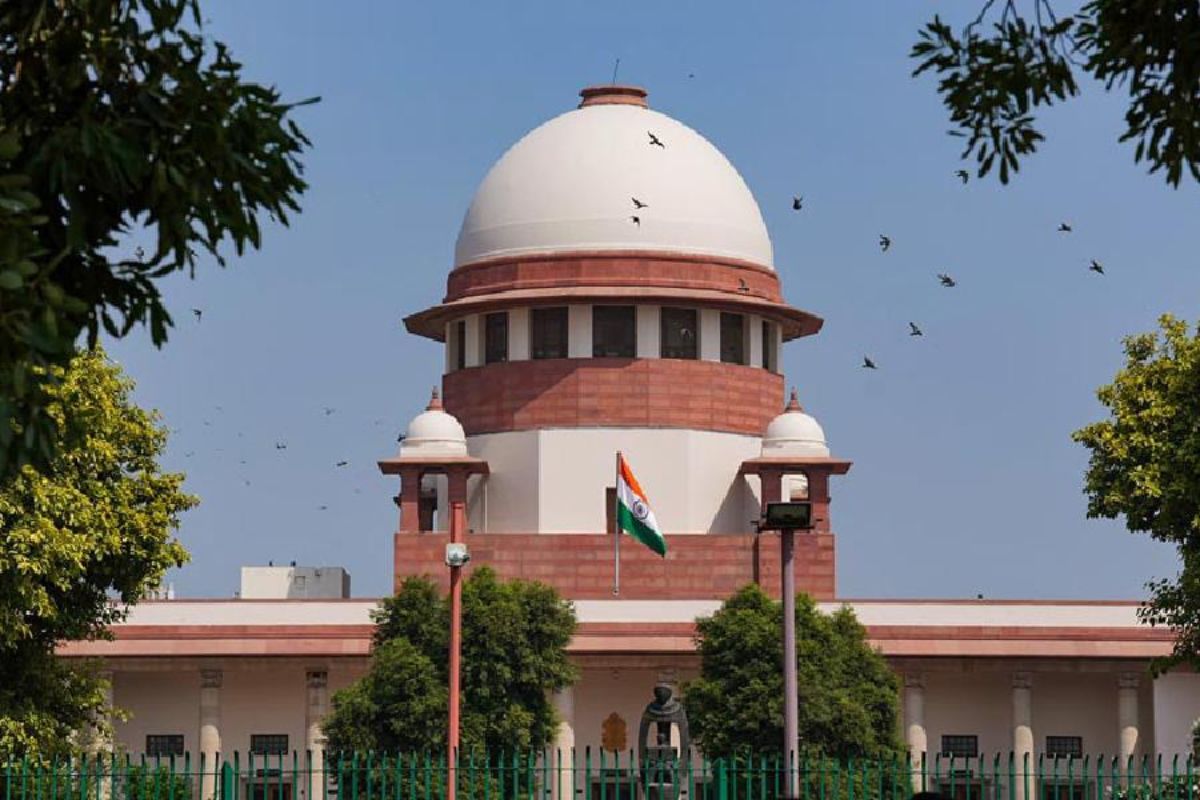India’s Got Latent: SC issues notice on YouTuber Ashish Chanchlani’s plea against FIRs
SC issues notice on YouTuber Ashish Chanchlani’s plea to quash or transfer FIR in India’s Got Latent case; tagged with Ranveer Allahabadia’s petition.
It stated that the right to marry is not a fundamental right and it cannot read differently the words in the provisions of the Special Marriage Act (SMA) as it would amount to judicial legislation.

SC quashes proceedings against Karnataka Dy CM Shivakumar in PMLA case
In a setback to the LGBTQIA+ community, the Supreme Court on Tuesday refused to grant legal recognition to same-sex marriage (SSM) and civil union. It stated that the right to marry is not a fundamental right and it cannot read differently the words in the provisions of the Special Marriage Act (SMA) as it would amount to judicial legislation.
The court left it to Parliament to take a call on the issue.
Advertisement
Though there were four judgments by the Chief Justice DY Chandrachud, Justice Sanjay Kishan Kaul, Justice Ravindra Bhat and Justice Pamidighantam Sri Narasimha, the common thread of all was that the provision of SMA cannot be interfered with or words therein be read differently to include non-heterosexual couples within its fold.
Advertisement
Refusing to interfere with the provisions of the SMA, a constitution bench comprising Chief Justice DY Chandrachud, Justice Sanjay Kishan Kaul, Justice Ravindra Bhat, Justice Hima Kohli and Justice Pamidighantam Sri Narasimha, however, said that the queer couples have a right to cohabit without any threat or coercion to their life. under Article 21.
The majority of Justice Bhat, Justice Kohli and Justice Narasimha overruled both Chief Justice Chandrachud and Justice Kaul and held that non-heterosexual couples cannot be granted the right to jointly adopt a child.
CJI Chandrachud and Justice Kaul had said that same sex couples have the right to jointly adopt a child.
Disagreeing with the CJI on the right of queer couples to adopt and voicing certain concerns, Justice Bhat said, “Therefore, it is our considered opinion that to create an overarching obligation upon the state to facilitate through policies the fuller enjoyment of rights under Article 19 and 25, is not rooted in any past decision, or jurisprudence. That queer couples have the right to exercise their choice, cohabit and live without disturbance – is incontestable.”
While Justice Kaul broadly agreed with Chief Justice Chandrachud on “civil union” of same sex couples to “remedy the historical injustice and discrimination”, Justice Bhat, Justice Kohli and Justice Narasimha said “Recognition for Civil union cannot exist in the absence of a legislation. Creation of an institution depends on State action which is sought to be compelled through the agency of the court.”
“There is no unqualified right to marriage except as it is recognized under the law. Conferring legal status to civil union can only be through an enacted law,” the majority view said.
The minority judges said that Centre, states, and Union territories shall not bar queer people from entering unions to avail benefits of the state. The majority said the entitlement to civil unions can be only through a legal regime and courts cannot enjoin creation of such a regulatory framework.
The majority judges said the queer persons are not prohibited in celebrating their love for each other, and they have the right to choose their own partner and they must be protected to enjoy such rights.
However, all the five judges were unanimous in creation of a high-powered committee headed by Cabinet secretary proposed by the Centre in May to examine the concerns of queer couples and moot corrective measures.
The pronouncement of the four judgements by Chief Justice Chandrachud, Justice Kaul, Justice Bhat and Justice Narasimha lasted for almost two hours.
The verdict of the top court came on a batch of petitions seeking right to marriage for members of the LGBTQIA+ community under the Special Marriage Act, 1954.
The constitution bench judgment on a batch of petitions seeking a declaration recognising the same sex marriage under the SMA on the touchstone of equality of right for LGBTQIA+ community with the heterogeneous couple marriage.
The hearing commenced on April 18, 2023, and judgment was reserved on May 11, after the matter was heard for 10 days.
Advertisement